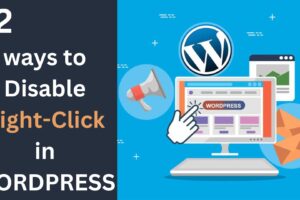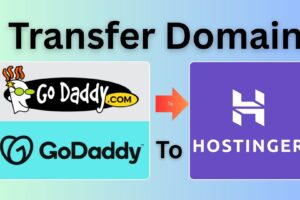
9 Best Blogging Platforms for 2025: A Comprehensive Guide
Best Blogging Platforms for 2025: Blogging has evolved significantly, offering a wide array of platforms catering to different goals and expertise levels. Choosing the right blogging platform can make all the difference in reaching and engaging your audience.
Here’s a deep dive into the top blogging platforms, highlighting their features, pros, cons, and the best user profiles for each.
1. WordPress.org ????
WordPress.org is one of the most popular self-hosted blogging platforms, powering over 40% of websites worldwide.
Key Features:
- Extensive customization with thousands of themes and plugins.
- Complete control over your site, hosting, and domain.
- Ideal for building everything from simple blogs to complex websites.
Pros:
- Highly customizable with open-source flexibility.
- Ownership over your content and data.
- Scalable with limitless possibilities.
Cons:
- Requires some technical skills for setup.
- Hosting and domain costs are separate.
Best For: Bloggers and businesses who want full control over their content and customization.
2. Wix ????️
Wix is a versatile website builder suitable for bloggers looking for an easy drag-and-drop solution.
Key Features:
- Intuitive drag-and-drop editor with customizable templates.
- Integrates blogging with e-commerce features for online stores.
- Mobile-friendly designs with built-in SEO tools.
Pros:
- No coding needed – ideal for beginners.
- A large selection of templates.
- Offers a free plan for basic usage.
Cons:
- Limited flexibility and customization for complex sites.
- Wix branding on free plan.
Best For: Beginners and small business owners who want an easy-to-use platform without technical setup.
3. Blogger ????
Blogger, owned by Google, is a straightforward and free blogging platform with basic tools for bloggers.
Key Features:
- Simple setup with a Google account.
- Seamless integration with other Google tools.
- No hosting costs; free blogspot.com subdomain.
Pros:
- Completely free to use.
- Google-backed security and reliability.
- Easy to monetize with Google AdSense integration.
Cons:
- Limited customization and control over the website.
- Basic design options and fewer themes.
Best For: Hobby bloggers and those looking for a free, no-frills blogging option.
4. Medium ✍️
Medium is a minimalist platform focusing on the writing experience and sharing ideas within a large community.
Key Features:
- Beautiful, distraction-free writing interface.
- Large built-in audience for organic reach.
- Simple editor with no technical setup.
Pros:
- No need for hosting or domain setup.
- Community-driven with opportunities for exposure.
- Potential for monetization through the Medium Partner Program.
Cons:
- Limited control over content format and customization.
- Content lives on Medium’s domain.
Best For: Writers and thought leaders focused on reaching a built-in audience without managing a website.
5. Squarespace ????️
Squarespace is an all-in-one website builder with beautiful templates, especially popular among artists, photographers, and creatives.
Key Features:
- Visually appealing templates with high-quality design.
- Integrated e-commerce and SEO options.
- No need for separate hosting.
Pros:
- Professional-grade design and templates.
- Excellent support for multimedia content.
- Simple e-commerce and SEO integration.
Cons:
- More expensive than other options.
- Limited third-party extensions.
Best For: Creatives and businesses looking for a visually stunning, all-inclusive website solution.
6. Ghost ????
Ghost is an open-source platform designed specifically for writers, journalists, and publishers.
Key Features:
- Focus on speed, optimized for publication and email newsletters.
- Clean, minimalistic interface.
- Supports membership and subscription models for monetization.
Pros:
- Fast and SEO-optimized with AMP support.
- Subscription and membership model integration.
- Great for writers and publishers focusing on content and audience growth.
Cons:
- Requires self-hosting or a subscription to Ghost Pro.
- Limited themes and plugins compared to WordPress.
Best For: Content-focused bloggers and publishers wanting a streamlined experience without distractions.
7. Weebly ????️
Weebly, now part of Square, is a user-friendly website builder suitable for small businesses and bloggers.
Key Features:
- Simple drag-and-drop builder.
- Built-in e-commerce features powered by Square.
- Free plan with a Weebly-branded domain.
Pros:
- Beginner-friendly interface.
- Integrated e-commerce options.
- Affordable paid plans.
Cons:
- Limited flexibility for advanced customization.
- Branding on the free plan.
Best For: Small business owners and beginners wanting to create a website with minimal effort.
8. HubSpot CMS ????
HubSpot CMS is an integrated content management system ideal for businesses that want to combine blogging with inbound marketing tools.
Key Features:
- Integrates with HubSpot’s CRM and marketing tools.
- Personalization features and marketing automation.
- Built-in SEO and analytics.
Pros:
- Perfect for business-focused blogs with marketing goals.
- No technical setup, with top-notch support.
- Full suite of marketing and CRM tools.
Cons:
- More expensive than other platforms.
- Limited to HubSpot’s ecosystem.
Best For: Businesses that prioritize content marketing and want a blog integrated with a CRM.
9. Substack ????
Substack is ideal for writers, journalists, and bloggers looking to build an audience through newsletter subscriptions.
Key Features:
- Subscription-based monetization model.
- Newsletter and blog functionalities combined.
- Easy to set up and use with built-in analytics.
Pros:
- Allows direct monetization through paid subscriptions.
- Strong community focus on writing.
- No upfront costs; Substack takes a percentage of paid subscriptions.
Cons:
- Limited customization and control.
- Not suitable for non-content-heavy blogs.
Best For: Writers and journalists who want to focus on content and build a subscriber base.
FAQs on the Best Blogging Platforms ????
Which blogging platform is best for beginners?
Platforms like Wix, Squarespace, and Blogger are ideal for beginners due to their user-friendly interfaces and low technical requirements.
What’s the difference between WordPress.com and WordPress.org?
WordPress.com is hosted and managed by WordPress, while WordPress.org is self-hosted, giving users more customization but requiring more setup.
Which platform is best for monetization?
WordPress.org and Substack offer strong monetization options through ads, subscriptions, or e-commerce.
Can I switch platforms later?
Yes, though some platforms are easier to migrate from than others. WordPress.org provides plugins for easier migration.
What’s the best option for content-heavy blogs?
For content-focused sites, Ghost and Medium are optimized for writers who want to reach an audience without managing too many technical details.
Which platform has the best SEO tools?
WordPress.org is known for robust SEO plugins like Yoast, which provide granular control over SEO settings.
Can I use my own domain name?
Yes, most platforms allow custom domains. Some, like Blogger, provide free domains with branding that can be upgraded.
What’s the cost of starting a blog?
Costs vary: WordPress.org has hosting fees, while Blogger is free. Premium plans for most platforms range from $2 to $50 monthly, depending on features.
Conclusion
Choosing the best blogging platform depends on your needs, goals, and technical expertise. Here’s a quick summary:
- For complete control and flexibility: Choose WordPress.org.
- For ease of use with e-commerce: Go for Wix or Squarespace.
- For simplicity and minimal setup: Blogger or Medium are excellent options.
- For businesses prioritizing marketing: HubSpot CMS is a strong choice.
- For writers focused on subscriptions: Check out Substack or Ghost.
Ultimately, consider your long-term goals, level of technical expertise, and the type of content you’ll be creating. The right platform will support your growth and make blogging a rewarding experience!



